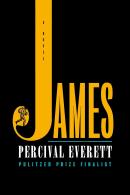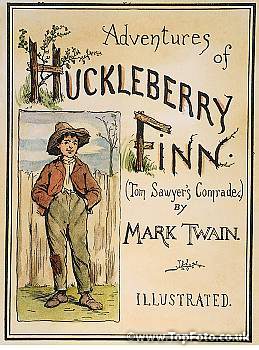There’s only a tiny handful of Americans writers whose skill is so deep and imagination so wide that they seem to reinvent themselves with every book — whose truly amazing talent lead us to wonder with bated breath “What will they do next?”
Percival Everett is a leading member of this group. His 24 novels, four story collections, six books of poems and other writings offer a masterclass in the possibilities of narrative strategy and stylistic range. Most recently, his 2021 novel, “The Trees,” was built around a series of mysterious murders; his 2022 novel, “Dr. No,” was a sparkling, philosophic take-off on the James Bond genre. His new novel, “James,” recasts “Adventures of Huckleberry Finn” from the perspective of the enslaved Jim.
 As he reimagines some famous scenes from Twain’s novel and adds many new ones, Everett transform’s the novel in a singularly magnificent manner: He portrays James, and his fellow enslaved people, as if he they had had all the advantages of education they were denied. Through his first-person narration, James comes across as an erudite polymath who holds imaginary conversations about freedom and the meaning of life with Jean-Jacques Rousseau, Voltaire and John Locke. Inside Judge Thatcher’s library, James thinks:
As he reimagines some famous scenes from Twain’s novel and adds many new ones, Everett transform’s the novel in a singularly magnificent manner: He portrays James, and his fellow enslaved people, as if he they had had all the advantages of education they were denied. Through his first-person narration, James comes across as an erudite polymath who holds imaginary conversations about freedom and the meaning of life with Jean-Jacques Rousseau, Voltaire and John Locke. Inside Judge Thatcher’s library, James thinks:
I had wondered every time I sneaked in there what white people would do to a slave who had learned how to read. What would they do to a slave who had taught the other slaves to read? What would they do to a slave who knew what a hypotenuse was, what irony meant, how retribution was spelled?
Only when white people are around do he and his fellow blacks speak in an Uncle Remus patois – allowing Everett to explore one his signature themes: masks and identity, here leavened with the threat of racial violence. “White folks expect us to sound a certain way and it can only help if we don’t disappoint them,” James explains. “The only ones who suffer when they are made to feel inferior is us.”
It is a brilliant choice as it allows Everett to show how his characters might have been, while allowing the author to embark on sophisticated explorations of the meaning of liberty, loyalty and family.
 As in Twain’s novel, James runs away after learns of Miss Watson’s plans to sell him to a man in New Orleans, separating him from his wife and children. He soon connects and travels with Huck, who is in flight following the return of his abusive, alcoholic father.
As in Twain’s novel, James runs away after learns of Miss Watson’s plans to sell him to a man in New Orleans, separating him from his wife and children. He soon connects and travels with Huck, who is in flight following the return of his abusive, alcoholic father.
Throughout their journey — as James tries to find a way to reunite with his family — Everett underscores the very different stakes for his two main characters: While Huck enjoys a series of adventures, James is fighting to keep his life and liberty, which can be stolen in a flash. Everett has given us a magnificent book, full of insight and humor, that does not retell Twain’s story but completes it.
“James” has been receiving rave reviews. Here’s a sample:
Dwight Garner in the New York Times: What sets “James” above Everett’s previous novels, as casually and caustically funny as many are, is that here the humanity is turned up — way up. This is Everett’s most thrilling novel, but also his most soulful. Beneath the wordplay, and below the packed dirt floor of Everett’s moral sensibility, James is an intensely imagined human being.
Ron Charles in the Washington Post: What’s most striking, ultimately, is the way “James” both honors and interrogates “Huck Finn,” along with the nation that reveres it. What does it mean that — in Hemingway’s words — “all modern American literature comes from one book by Mark Twain called ‘Huckleberry Finn’”? How did we manage to privilege the story of a White boy’s moral insight over the plight of a Black man’s existential peril? For all Twain’s comic genius and social courage, “Huckleberry Finn” allows White readers to talk about slavery while remaining at the center of the story. Like Huck, we can feel warmed by bravely resolving to go to hell for Jim without getting burned.
John Warner in the Chicago Tribune: Percival Everett [is] our current Great American Novelist. . . [JAMES] is a masterpiece that will help redefine one of the classics of American literature, while also being a major achievement on its own. . . I almost cannot imagine a future where teachers assign “Adventures of Huckleberry Finn” without also assigning James alongside it. . . Everett is one of the most, if not the most interesting writers working today.
- Read an excerpt from the novel
- Watch Everett discuss the novel
- Read the New Yorker’s profile of Everett
- Watch Everett discuss literature and race
Percival Everett’s Top Ten List
1. Tristram Shandy by Laurence Sterne (1759–67)
2. The Way of All Flesh by Samuel Butler (1903)
3. Adventures of Huckleberry Finn by Mark Twain (1884)
4. Invisible Man by Ralph Ellison (1952)
5. Cane by Jean Toomer (1923)
6. A Clockwork Orange by Anthony Burgess (1962)
7. Death Comes for the Archbishop by Willa Cather (1927)
8. Angle of Repose by Wallace Stegner (1971)
9. Bluebeard by Kurt Vonnegut (1987)
10. Nights at the Circus by Angela Carter (1984)